|
|
This Is the Place
and its place
IN THE
NEWS
FIND
EXCERPTS HERE
There
has been a renewed interest in This Is the Place
since it was published in 2001 just before the Winter
Olympics in Salt Lake City, Utah. And no wonder! Its
unique culture has been strangely neglected in American
literature. Much is written about the South. The Quaker
culture occurs prominently in history books and has been
featured in major movies. Students learn about the
individual cultures that give the New Orleans area its
flavor, is both history texts and in books by Anne Rice.
So now, the news is making those who
want to know more about our other cultures hungry for
more. Warren Jeffs, the prophet of the Fundamentalist
Church of Latter Day Saints, was on trial in Utah for
rape. "Big Love" has been a pop culture HBO hit. And
Mitt Romney, a Mormon who calls Utah his Zion, ran for
the Republican presidential nomination. Look-alike
Mormon groups in Texas, Colorado and Utah have
been in the news. Mormons appeared prominently in the
controversial fight for Proposition Eighteen in
California. And Mormon offshoot-polygamist groups looked
on in a recent flash flood of their communities with
losses that might have been averted had they not been so
isolated from the media.
The best way to learn about the
influence of this unique culture on the national scene,
on history of the West, and on the affects these current
events is to read work by an author
- who was raised there
- knows the culture intimately
- does not need to depend on research alone
- who is saw the divided culture in at the center
of Mormonism firsthand
- was in fact a part of each of those cultures.
For a growing list of
links and information on
tolerance, peace, Utah, and
more.
For Carolyn's first person essay,
"Beating Time at Its Own Game, click here.
Go back to the This
Is the Place main page.
See
reviews of
This Is the Place .
(Each includes permission to
reprint.) |
|
|
Excerpt
from
This Is the Place |
This is the Place
A N O V E L B Y
Carolyn Howard-Johnson
Utah 1959
Prologue
Sky Eccles
History
There is a family story.
It is told that when my Gram Harriet left her career and
piano behind at her grandparent’s house in Salt Lake
City to come to Holladay to live with her mother, she
left the breadth and breath of her life. Brock, her
husband, had been determined to do what was
impossible--to replace that life piece by piece. He
finally settled on replacing the piano; perhaps he saw
that he couldn’t do all the rest for her, or perhaps he
saw that the piano was, after all, the key segment of
her soul’s puzzle.
“Everyone knows
Harriet’s stubborn as an ox and blue-blooded and high
strung as a thoroughbred,” Brock said, “So it’s no onus
on me if I happen to say so.” That’s the way the first
entry in Brock Eccles’ diary read and that’s the way, I,
Skylar Eccles, recorded it on the day my cousin Rachel
and I read it. We were in the fourth and fifth grades
respectively and knew better but did it anyway.
The diary was
lying next to one written by Brock’s father, Hart, but
that reading waited for another time that never came for
Hart’s diary has been lost. Only snippets survive,
handed down verbally, father to son, like the tales of
Odysseus. I don’t have my original copy of the notes I
took on that day either, flushed with the thrill of
being sneaky. I memorized that first line so Rachel and
I could quote it and laugh when Gram Harriet was on a
tirade. Everyone--even a couple of giggling grade
schoolers--knew Grandpa Brock spoke God’s truth when he
said that. The rest of the story I have to remember the
way my imagination recorded it and tell it much like the
bards of Homer’s day, with as much care with the truths
of legend as possible:
Gram
Harriet had been teaching piano to the neighborhood
children at the old upright in the old Cottonwood Ward,
the same one she had played when she first came to
Brock’s attention. All the brothers and sisters at the
ward had agreed that Wednesdays the piano would not be
scheduled for any church activity so that Harriet could
teach their children. The very young children--some were
as young as three-- brought small change for their
lessons. Everyone knew that Gram Harriet could teach
more children if she had a piano in her home and that
there was one she loved and had left behind at the
Cavewell home.
Grandmother Cavewell
died of an attack of emphysema just seven days after
Thanksgiving the year that piano appeared in Gram
Harriet’s living room. She had done a fine job of
planning how to break through the wall of bitter pride
that Harriet had built around herself. She had done it
with trepidation, and without a notion that it would be
her last gift to her stubborn, redheaded granddaughter
or that her own death would somehow tie the whole
package into a presentation Harriet would not be able to
refuse.
After her grandmother’s
death Harriet let herself into the ward chapel with a
quiet key. She played Morning Song until her fingers
felt tired and her body was so numb she wasn’t sure she
could make the walk back home under the cloud-tainted
moon. It was too late for any other amends and if music
couldn’t reach out to souls removed from earth then, in
Harriet’s view, prayer could do no better.
Not long after that
Brock, along with his younger brother, Joseph, and his
cousin, Stue, brought Harriet’s piano from Salt Lake
City. Because Stue’s daughter took lessons from Harriet,
Brock had asked Stue to help. He also asked him because,
in Brock’s words, he was as “big as a mastodon.”
All three believed that
Franklin’s old model A truck, one of the few engined
vehicles in Holladay at the time, wouldn’t be large
enough to lay the piano flat. They used the old family
buckboard because they considered a prone position
essential to getting the instrument to Holladay, a small
farming community outside the city. It was this process
of getting the instrument up from the Cavewell home on
the floor of the valley to the Eccles property on the
foothills that most concerned Brock.
There was a wariness
among the perpetrators of this piano scam. Joseph,
Brock’s youngest sibling, was sure Harriet would dig in
her heels and not accept it. He wasn’t crazy about
turning the buckboard around and hauling it back; it
wasn’t, after all, a bag of coal or a bushel of apples.
“What can she do once
the thing is in the parlor?”
“Well, she kin chop it
to smithereens like she did the parlor wall.” Stue said.
“Or she c-can refuse to
play until her temper flares down--it may take a couple
of decades,” Joseph said..
“Well, its all been
fixed so it will work” Brock said handing up blankets
and quilts and ropes that would keep the piano intact on
the way home.
“Sure you have...You’ve
got her r-r-right under your thumb.” Joseph held up his
pinkie with a grin that reflected his brother’s own.
“Nope, you watch.
Crystal got instructions from Grandmother Cavewell
before she died. You just wait!”
When the buckboard came
lumbering down the driveway Crystal, Brock’s mother, was
in the yard. “Did you remember Grandpa’s note? For
heaven’s sake, be careful! She’ll notice if there’s a
scratch. Be careful of the top. It’ll fly open and
spring its hinges. Goodness, you men. It’s an
instrument, remember?”
“Okay, Ma. We brought it
all the way from the Avenues. I think we can get it
through the yard. If you’ll quit fussing, we can do the
last twenty feet before Harriet gets home from
teaching!”
“Yeah, you should be
herding that chorus of kids. Are they going to be here
before Harriet?”
When Harriet walked up
the front path ten children tugged at her skirts.
“We’re having a party.”
“Garret has cookies for
us.”
“Come, look what we have
to do our lessons on.”
The young musicians’
parents stood proudly by in the parlor and the dining
room and even on the porch. Most of them carried baked
goods they had brought for the surprise.
There stood the piano,
burnished wood, with sheets of music piled near the
little circular piano seat. Harley had polished the
front part--all he could get to before the guests
started to arrive--with almond oil. One child at a time
came forward as Garret called them and played their
week’s lesson “with feeling, Mrs. Eccles, just like you
want me to!” Stue’s daughter, Olivia, said, as a formal
introduction, when it was her turn.
Harriet didn’t speak. It
was quiet even with the music and the children milling
about. One child at a time climbed up on the adjustable
stool that was twirled by Crystal to the proper height
for each, with no applause in between.
Olivia played “The
Birthday Party” a three-note extravaganza, right hand
only, from John Thompson’s Beginning Primer and then
went back to her milk and cookies. Todd, Harriet and
Brock’s younger son, did a minuet. He was so young he
was pudgy but it was still apparent that he had
inherited his mother’s skeletal fingers and her innate
rhythm. Afterwards he hung on his father’s pant leg and
watched his father reloop the rope that had held the
piano as the next child played.
When everyone had
performed, including Bernice who was showing some
promise for classical music, Harriet had been given a
long, long time to think. “Well, I just think we’ll have
to have these busybody men make a proper piano bench,”
she sniffed, “One that will hold a teacher and a
student.”
“I guess that’s one job
I’d better not put off.” Brock said. As he walked into
the kitchen to get more gingersnaps for the children he
leaned toward Joseph and whispered, “Notice that even
when we win, we lose?”
When the guests left,
Brock said, “Harriet, there’s a note from Grandfather
Cavewell down near the pedals. Sometimes the best part
of a gift is the card.”
The note was rolled
tightly, lodged between the left pedal and the piano
front panel.
“Dear Harriet,
Your grandmother
and I kept your piano as long as we could to give your
anger time to fester down.
Remember, this
was a gift to you from your grandmother when you were a
child. I can’t give it to you again for it is already
yours. Your grandmother always said, ‘Love lasts about
as long as you’ll let it.’ I guess that has special
meaning now that she’s gone.
Grandpa Cavewell”
Chapter 1
Sky Eccles
The Search
Sky Eccles sat in the
old ‘49 Buick convertible she shared with her mother,
its fenders riveted with salt decay from the Utah roads.
“Old but cute,” Sky thought, patting the steering wheel
rhythmically out of affection and nervousness. Rusted
down to a washed matte-maroon, she still wished for
something less distinguishable right now. Something less
tank-like with less presence. Something less dilapidated
that would blend in. Something with a top that would
allow her to hide out. She sat in silence looking at her
grandparents’ house at the edge of Holladay, a small
farming community turning suburb at the edge of Salt
Lake City. She felt exposed even with shadows of lilac
shrubs and cottonwood trees shuttering the late
afternoon light. She was to deliver sheet music from
Eldridge Music Store to her grandmother but she didn’t
want to go in. She also didn’t want to turn around and
go back home.
Located at what was once
the dead-end of Meander Lane, the little house had been
built by her grandfather, Brock Eccles, and her
polygamist great-grandfather, Hart Eccles. The house and
land was in Sky’s soul, both sweet and scary, like a
sugar apple with a dark spot in its core.
Sky watched her younger
cousins, small versions of herself and the other cousins
she had grown up with. Women in Utah gave birth young
and their years of fecundity continued undiminished,
like peas being skimmed from a pod, quicker and easier
after the first pea burst from its protective sheath.
Some of these youngsters were nearly two decades younger
than Sky but were still of the same generational slot.
These first cousins were
running in and out of the screen door that slammed
against their rumps with each misjudged exit. The dog, a
mutt called Old Black Joe with remnants of a herder in
him, sometimes took the slam for them if he didn’t
negotiate the swing just right. This game of tag would
continue as twilight gloom shrouded their figures into
small screeching ghosts: In the back, through the house,
out the front. There would be no adult interference and
the children would wind down on their own like tired
tops.
There was one major
difference between this group of cousins and the one
that played the same game in the 40s; there was no Sky
in this one. Both groups would have looked the same.
Kids of all ages. Hair shot through with gold streaks of
sun. Eyes that reflected the pool of English ancestry.
But these children were all Mormons, or Latter Day
Saints, as they prefer to be called. Back in Sky’s time
what couldn’t be seen by the eye surely tainted the
atmosphere of any family gathering; Sky was not one of
them.
It was certainly not
this difference in religion that prevented Sky from
opening the car door and walking up the lawn, for that
difference, though usually unspoken and unacknowledged,
had been one she had lived with for nearly nineteen
years now. It was that this day she carried a sprouting
decision she must make along with the Mozart and Debussy
she must deliver. This errand, in this place, with these
people could influence that decision.
“Sky. Sky. Sky-ay-ay!”
One cousin began the chant; the others joined. The car
had been spotted. A multitude of cousins with fjord-blue
eyes abandoned their game. Clinging to her skirt and
hanging from her elbows and arms like puppets, they
escorted her in a rush along the path they had been
taking. Old Joe nipped at her heels herding her along in
the smell of children wet with excited play.
Gram Harriet--Sky was the only grandchild to call her
anything other than Gram or Grandma Eccles--was in the
kitchen telling fortunes from the vaults of coffee cups
to the parents of the crew of youngsters trailing behind
her. No one had turned on the bare bulb hanging above
the table. No one wanted to break the spell. Gram
Harry’s silver hair was traced with telltale red
streaks. It gathered the dim, evening light in the room
just as the strength of her presence had gathered the
youngest four of her eight children to her. No one saw
the wrinkles that shredded a once smooth expanse on her
forehead or the eyelids laden with the gravity of time;
they would only hear her prediction of vacations to come
and of changes to be made in life.
Great-Grandmother
Crystal sat with her hand on Gram Harriet’s arm, like a
supportive appendage. There was a triangular layout to
the scene like Rembrandt would have used, support
against support, spotted with strong light and shadow.
The great-grandmother had quietly occupied an upstairs
bedroom for the whole of Gram Harriet and Gramps’
marriage in spite of Harriet’s original insistence that
she stay in the one off the kitchen that she and Hart
had occupied until his death.
“Hart’s and my room
is now yours and Brock’s room. You two are now heads of
this household,” Crystal had said to the young couple
and it had been told on many occasions since, out of
gratitude and, perhaps, as a reminder.
Great Grandma
Crystal was tiny, less than five feet, shrunken with
osteoporosis. Her frail body was like a bunch of snap
beans, showing all the under-structures of her being in
ridges and lumps. Gram Harriet mostly said, when Crystal
wasn’t around, that Crystal had been the best
mother-in-law a body could ask for. She also said, in
some disconnected conversations scattered across the
decades, that this home never seemed like her own for it
had been Crystal’s before her and was Crystal’s still.
Now Grandma Crystal’s
head shook in tiny patterns of negativity as each
fortune was told. Sky was not sure whether this minute
disapproval was from a stroke she had suffered or
because she did not believe a whit in the proceedings.
Once Sky had asked during a similar fortune telling
tryst, “What do you think, Sweet Crystal?” Crystal had
smiled and tilted her head toward her daughter-in-law.
“Harriet is doing the fortune telling here. I am along
for the show.” Her voice had been like the reedy sounds
from a Peruvian pipe; there was a non-committal wavering
between octaves, a strength of purpose in the notes.
As Sky entered the
kitchen with dog and children clustered about her, Aunt
Leah was watching her cup being prepared. The sound of
the upside down china cup chimed against the china
saucer in the twilight. A personal future secretly
appeared in the splotches of coffee grounds that
appeared in the over-turned cup away from the eyes of
all present. Everyone waited for Gram to pronounce what
the grounds had revealed. This process was so ingrained
that no one even considered that telling fortunes with
coffee grounds was not the way it was usually done. All
were aware that both tea and coffee were forbidden by
The Church. All were willing to break the rules for a
good eye-opening jolt of joe or the convivial projection
of the future in this dim old kitchen.
Only Gram Harriet could
decipher the messages in the cups and because this one
was not to her liking, she swirled the last drops of
coffee to rearrange the patterns a bit before she began.
“I see angry energy
unfolding in your cup,” Grandma said to Leah, the
youngest daughter. When the children saw the secret
rites, they screeched for their fortunes, too, leaving
Leah with the Delphic message to be unraveled later.
Teaspoons full of spent grounds were put into Postum, a
dark grain brew that Mormons often substituted for
caffeine-ridden coffee. The children never commented on
the difference. They just gulped the brew non-stop and
then each of their cups was subjected to the wizardry of
triple turnings amid childish awe like the whispers of
evensong. Everyone knew that this was a family secret.
No one mentioned the coffee outside this twilight
kitchen because it was forbidden for the devout. No one
was clear about whether the fortunes were also not to be
mentioned so they weren’t.
Gramps Eccles entered
the kitchen from the back porch. “Couldn’t help notice
the angelic chorus of cousins. That must mean my eldest
grandchild is here, Peter Pan to the hoard of Eccles
grandchildren.” He put his hand on Sky’s hair, an action
only slightly different from the way he would put his
hand on the top of her head when she was much shorter.
Then his eyes narrowed in careful control. It was the
same look he got when candles were put on the dinner
table by Gram, who had at one time belonged to the
Church of England. It was the same squint he once aimed
at Sky’s mother when she forgot and wore a tiny gold
cross around her neck to Sunday dinner.
Many people in Gramps’
beloved church felt a keen distrust of anything that
pretended to be magical or even symbolic for such things
smacked of false gods and the occult. It was not because
they were not superstitious for they were, but not in a
knock-on-wood or don’t-walk-under-a-ladder way. They
were a practical people, reserved, conservative. But
there was a subtle awareness of spirits among many of
them. An angel, Moroni, had been instrumental in the
founding of the Mormon Church. Many also felt the
presence, even in these times, of the Three Nephites who
were Jesus’ American followers in the Book of Mormon.
It recounted the American continent’s tribal and
redemptive history. These Nephites were blessed with
eternal, mortal life--sort of spiritual guardians. They
roamed among their Mormon lambs, giving aid where needed
and admonishing those who strayed. Spirits were the
fiber of the unseen. They possessed power and were not
to be taken lightly.
Once, when Sky and her
cousins were in their early teens, Grandfather Brock
Eccles had caught them moving the mysterious puck around
an Ouiji board in search of information about which
little boy at school might return their affection when
Gramps thumped out their evil with such force that the
children and board scattered into different quarters of
the room. The anger and fear on Gramps face had been
enough to discourage playing the game of evil ever
again.
Now Sky reached up
to give his bulk a hug and plant kisses on cheeks that
were concave from ill-fitting false teeth, just as she
had then. He wore a felt fedora-style hat, grubby from
handling with hands rich with loam. A wide belt held old
dress pants in place around his girth and a plaid shirt
revealed the telltale ridges of the garments he wore
underneath.
A kind of tricot
underwear, garments were a spiritual staple that stayed
with him always, in sleep and wakefulness, a part of his
religion, a part of his essence like the smell of his
skin rich with the mustiness of the soil he worked. He
shared this symbol at the intimate level of marriage
with Gram Harry and with all “The Church” members, as
all people of Utah called the Mormons as if it was the
only church that existed anywhere about. He wore them
with a shared secret wisdom that tied them together like
macramé knots that those who were not of The Church
could never unpuzzle.
“I suppose you’ll want
your fortune, Sky,” Aunt Leah’s voice suggested in the
gloom of the room.
“No. I’ll pass. I
have Gram Harry’s music for her lessons next week. I
picked them up just before the store closed. Lucky the
news room at the Trib wasn’t busy so I could get across
the street by six.” Sky was relieved to have something
else to talk about. What if Gram could foretell about
Archer in the depth of the coffee grounds, patterns of
Chinese dragons or fearsome grizzlies that never seemed
to have any relationship at all to what Gram saw there?
And what if Gram could probe out the story that she was
unwilling to reveal on this night, either from the
debris in the cup or by the way Sky carried her eyes.
“So, did Gram’s fortunes
send everybody on a long weekend to Bear Lake?” Sky
asked looking at the flat, shadowed masks of three aunts
and one uncle framed by a sheet of darkening backlight
from the window. They were arranged like an audience on
the opposite side of the table from Gram Harry and
Crystal. The faces of the grandmothers gathered up peach
tint from the trifling rays reflected off the clouds and
waning sun. It was as if they had been spotted for a
stage effect, leaving the rest of the room dark and
undelineated.
“Jeez. How about a
little light on this party?” Sky reached over to turn on
the dangling light above the kitchen table. Seven pairs
of eyes squinted at her in the globe’s unprotected
glare. The light had been a mistake.
Gram took Sky’s
hand. “So, what’s up, Little Love? Trouble at work?”
That would be Gram’s immediate take. She hated that Sky
worked for the liberal Salt Lake Tribune rather than The
Church-owned Deseret News. Actually, she hated that Sky
was a writer.
“You have musical
talent,” Harriet had said when Sky had been chosen as an
editor of her high school newspaper and stopped coming
for Gram’s music instruction Tuesdays after school. Sky
hadn’t answered, the better to avoid Gram’s disapproval,
the inevitable report of bad behavior to her parents.
Gram Harriet was not one to let go that easily. “Music
runs in your veins.” She put her hand on Sky’s arm. A
breeze had moved the Puritan lace curtain and the sheet
music as if they were partners in a dance. Sky had
watched the paper float to the floor.
“Gram Harry, try to
understand. Words are my music. You love the notes, I
love the lyrics.” Sky took her grandmother’s hand in
hers, could feel the fan of ribs in the back of her
hand, her veins slide beneath the pressure of her
fingers. Gram withdrew her hand to brace the music
against a second breath of wind. Sky knew it was futile
then. And now, as a writer working for the Tribune, she
had poured gasoline into the fire of Gram’s disapproval.
In the state of Utah the newspaper a person read was an
indicator of just who one was, what one thought.
When--not if--they wanted to know what religion you were
they would ask what ward--church house-- you belonged to
or where your father had gone on a mission or a dozen
other seemingly noninvasive questions that would require
an admission that you were--or weren’t--Mormon. So,
“Deseret News or Salt Lake Tribune?” was a vital gauge
of religious and moral status. Sky was blessed tired of
it, one more indicator of how people--she--was
different, one more way to box up a soul and bind it
with a tie of twine.
Sky remembered to answer
through the haze of memories. “No, Gram. No trouble at
work. Maybe just tired.”
“Don’t put Mom off!”
Aunt Leah said. She was the one that most resembled Gram
Harriet, tall with hips that looked as if they had been
abbreviated with an ax, no width to them and no depth,
either--so flat at the back that it must have hurt to
sit. She was the only other redhead in the family
besides Sky and Harriet and the only one with a
disposition that matched Harriet’s as well.
“It never works
anyway,” she said. “Mom’s like a weevil. She’ll delve
until you tell her what she wants to know or thinks you
should know and if you don’t tell her she’ll spoon feed
it to you ‘til you get it right.” There was a pause. A
boundary overstepped. But Gram laughed and general
nervous laughter followed. The children fell back into
the darkness of the yard that obliterated their presence
like scrim falling on a darkening stage. The spotlight
glared above the table.
“So what is it,
Sky?” Gram shoved a cup and saucer at her. “You never
turned down a fortune before. You always had an
inherited sense that inner wisdom was the real stuff of
life, even if the rest of the world lifts an eyebrow at
it. Let’s find out what’s in these patterns of life.”
“Oh, Gramps is here
and he doesn’t like it much.” Sky’s eyes felt bright,
like fever. The bulb hung bare over the heads of the
family.
“I don’t know how you
can stand it,” Gramps said. “This plague runs in the
family. You’ve got a father who can tell where the
pheasants are hiding and how the world will be in any
given decade and a grandmother who reads cups.”
Gram Harry’s eyes
didn’t move. She could watch silence.
“O.K. Gram. You’re
right. Tell you what. I’ll come back over the weekend
for a nice chat, and a nice fortune and maybe I’ll bring
along another surprise.” Cups and saucers cleared from
the table with five pairs of hands, the rattles and
clanks loud. The chair legs grated into position under
the table, leaving the ghosts of themselves in rounded
dents in the linoleum. Five sets of helping hands. Five
hearts that had been scrutinized in their own time by
Gram Harry’s x-ray vision.
Only the two
grandmothers didn’t move. Harriet looked back into the
pottery mug she preferred, twirling and tipping the
droplets of coffee, pushing and reforming the grounds
along its sides. “Ah, I see a very young man coming into
my life,” she said, “and he is holding the hand of my
namesake, Skylar Harriet, my own maiden name turned
upside down. I see her hair and heart flaming as mine
once did.”
There was an
invisible sigh in the room’s clatter that Sky recognized
as her own, a wisp of sound, resigned like the color
gray. “His name is Archer, Gram, Archer Benson. But I’m
not sure I will be bringing him to you. I haven’t made
up my mind.”
“Benson,” Gram
breathed the name like the whisper of bellows. “A good
Mormon name.” Gramps stopped scraping chairs into
position. Leah stopped rinsing cups. The ivory soap bar
in her hand slipped away in a spurt like an exclamation
point.
“Yes, Gram. But that’s
scary for me. The Benson family is just plain scary.”
“What’s so scary?
Benson is no stronger name around here than Eccles,
maybe more ‘Salt Lake’ than ‘Holladay’ but certainly no
better.” Gram Harriet sniffed.
Gram had missed the
point of Sky’s fear altogether. Sky did not tremble at
entering a marriage with Archer as an equal. It was that
it would be necessary for her, in order to take vows as
an equal, to keep herself whole, unrearranged at the
whim of religion or convenience. That meant equal but
different. Equal but a painful reminder among the
doubtful. Unequal and a painful sorrow for her own soul
among the righteous. That she was a half-breed--half
Mormon and half Protestant--clung to her like a blue
aura that infected every Mormon room she entered, every
Mormon heart that knew her. That she had denied
Mormonism and chosen Protestantism was, for them, like
an untended blister.
Sky’s mother was an
example of what it might be like to marry a Mormon and
keep your spirituality intact because she hadn’t
converted. Gram Harriet was an example of what it might
be like to marry a Mormon and borrow his spiritual
identity for your own. No alternative was ideal. Two
generations of women who had married away from their
original strain.
Sky turned to look
at Great-Grandmother Crystal’s eyes. They could not be
very much different from what they might have been a
half century ago, the same ghost-eyes carried in the
vestigial memory of the entire Eccles clan. Make that
three generations. This woman lived her religion,
denying the parts that pricked, caressing the parts that
succored in times of darkness. Three different women.
Three different generations. Was it possible for Sky to
learn from these faces instead of having to learn the
hard way, from experience? Maybe, but not now. Not with
an audience.
Sky had come to soak
up the vibrations of this house and its people, to
ground her feet in the roots here, not to explain why
she was frightened. Given some time Sky could sort out
what she wanted from the fears of what marriage to
Archer would mean for them both and for her family.
“Gram, give me three
or four days,” Sky echoed her thoughts, “and I’ll have
the equipment to make a decision. Maybe it will be what
you see in those grounds.”
As Sky left she
heard Gram’s voice filter through the screen door, dusky
and hushed. “If it’s a Benson wedding, it will be a
temple wedding, Crystal. And I’ll get to help her
prepare for it.” Gram hadn’t missed what made this
decision frightening for Sky after all. It was just
that, in her eagerness to reclaim Sky’s spirit for
Mormonism, she had got it backwards.
------
Learn more about This
is the Place at or from the nearly three dozen
five-star reviews on Amazon at
www.bit.ly/ThisIsThePlace. The book is out of print
but is available through Amazon's New and Used feature.
|
|
|
Buy Links for
Carolyn's Books |
|
"Careers
that are not fed die as readily
as any living organism
given no sustenance."
~
Carolyn Howard-Johnson
Studio photography by
Uriah Carr
3 Dimensional Book Cover Images by iFOGO
Logo by
Lloyd King

To
subscribe to Carolyn's FREE online newsletter send an
e-mail.
Learn more about Carolyn's
newsletter and blog.
Read
past issues of Carolyn's
Newsletter.
|
Frugal
E-Book Tip |
|
Kindle E-Books
Aren't
Just for Kindle Anymore
Did you know that Amazon’s Kindle
e-books are a low-cost/no-cost way to access books
even if you don’t have a dedicated Kindle reader?
You can read Kindle's e-books on smartphones,
desktop computers and any e-device in between. You
can even store the books on the Amazon cloud.
~
Quote from
Diana Schneidman, author and
marketer |
|
|
|
Endorsements |
|
What Utah Authors Are
Saying:
“[This Is the Place] instills the conflicts
of Mormonism so gracefully and incisively...”
~
James W. Ure, author of Leaving the Fold
“It's been a week … and still the characters fight
for attention in my thoughts.”
~
Warren Stucki, author of Boy’s
Pond
|
|
Carolyn's Blogs |
|
The Frugal Retailer Blog
Carolyn shares nearly three decades of
retailing experience with
an emphasis on marketing.
Sharing with Writers
All things publishing with
an emphasis on book
promotion. Named to
Writer's Digest
101 Best Website list.
The New Book Review
Great way for readers, authors, reviewers and publicists to get more
mileage out of
a great review.
The Frugal Editor Blog
This is the Frugal, Smart
and Tuned-In Editor blog.
Covers editing, grammar, formatting and more.
Get the answers you need.
|
|
Resources for Literature with a Tolerance Theme |
|
Find Carolyn's suggestions for
books, plays, organizations and more that
promote
tolerance. |
|
Carolyn's Awards |
|
Awards for Carolyn's Books, Blogs and More The New Book Review
Named to
Master's in English.org Online Universities'
101 Essential Sites for Voracious
Readers

Writer's Digest 101 Best Websites
for Sharing with Writers blog.

Best Book Award for The Frugal Book Promoter (2004) and The Frugal Editor (2008)
and the Second Edition of The Frugal Book Promoter
(2011).

Reader Views Literary Award for The Frugal Editor

New Generation Award for Marketing and Finalist for The Frugal Editor
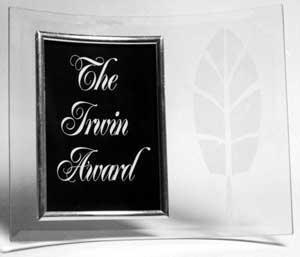
Book Publicists of Southern California's Irwin Award
Military Writers Award of Excellence for
Tracings, A Chapbook of Poetry.
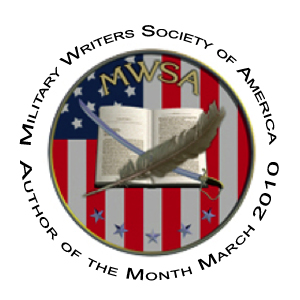
A Retailer's Guide to Frugal In-Store Promotion wins author Military
Writers Society of America's Author of the Month award for March, 2010

Gold Medal
Award from Military Writers Society of America, 2010.
MWSA also gave a nod to
She Wore Emerald Then,
a chapbook of poetry honoring mothers.
The Frugal
Editor
Named #! on Top Ten
Editing Books list.

Finalist
New Generation Book Awards 2012,
The Frugal Book
Promoter; Finalist 2010
The Frugal Editor;
Winner 2010 Marketing Campaign for the Frugal Editor

The Oxford Award
recognizes
the
alumna who exemplifies the Delta Gamma precept of
service to her community and who, through the years,
devotes her talents to improve the quality of life
around her.
The Frugal
Book Promoter is runner-up in the how-to category for
the
Los Angeles Book Festival 2012
awards.

Winner Diamond Award
for Achievement in the Arts
Glendale
California's Arts and Culture Commission and the City of
Glendale Library,
2013
And more than a dozen other awards for Carolyn's novel, short story collection and poetry.
See the awards page on this site.
|
|
Tips |
If you love literary
fiction, you'll enjoy the books Carolyn awards her annual
Noble (Not Nobel!) Prize to. Find them in the archives of
her "Back to Literature" column at
MyShelf.com.
For reviews
of hard-to-find books go to Carolyn's
New Book Review. Better still, readers are welcome to
submit reviews of books they love for publication there. The
guidelines for submissions are in the left column.
Find tips on writing, promotion, or tech
on every page of this Web site.
|
|
Endorsements |
|
"Howard-Johnson's
lyrical prose graces every page."
~ Marilyn Ross, author, speaker,
publishing consultant
"What a wonderful read! I
can see why [This Is the Place] won a number of awards."
~
Normal Sundberg
“This author’s words set me
free.”
~ Sona Ovasapyan, Student at Charles University, Prague, Czech Republic |
|
Proud to Support |
|
World Wild Life
Fund
with
Sublime Planet
book of poetry
celebrating
Earth Day
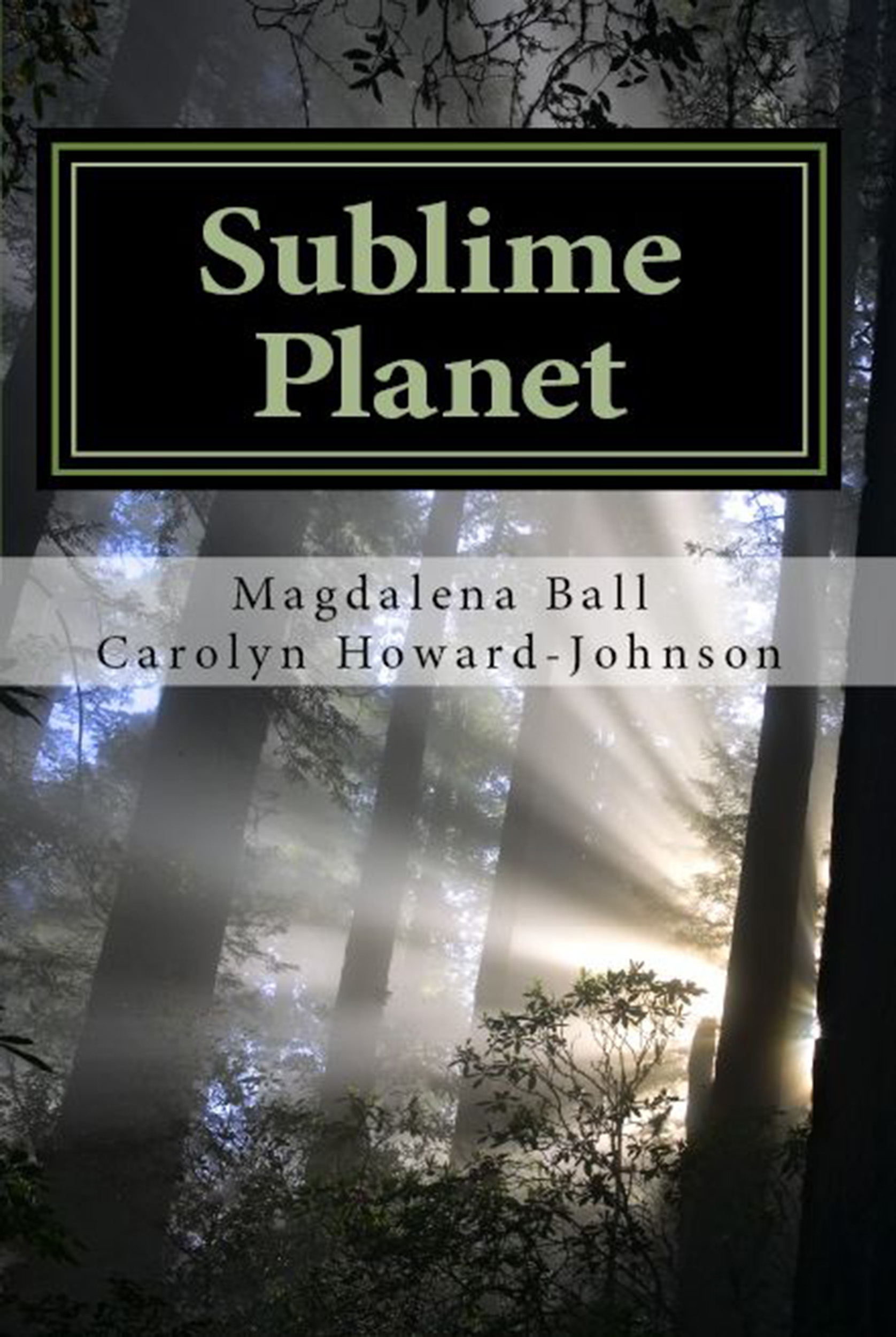
Featured
in
Pasadena Weekly Arts and Entertainment Section
All Proceeds to be donated to the World Wildlife Fund |
|
A
Selection of Carolyn's Past
Speaking Engagements |
|

Presenter
2009, 2010
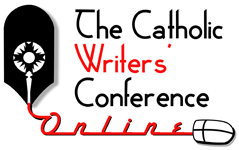
Presenter,
2008, 09, 10, 11

Panel moderator, 2007

National Span College
presenter 2002

Fellows presenter, 2007,
08
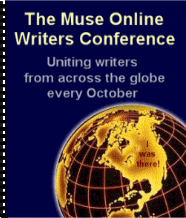
Co-sponsor and presenter,
2007, 08, 09, 10, 11
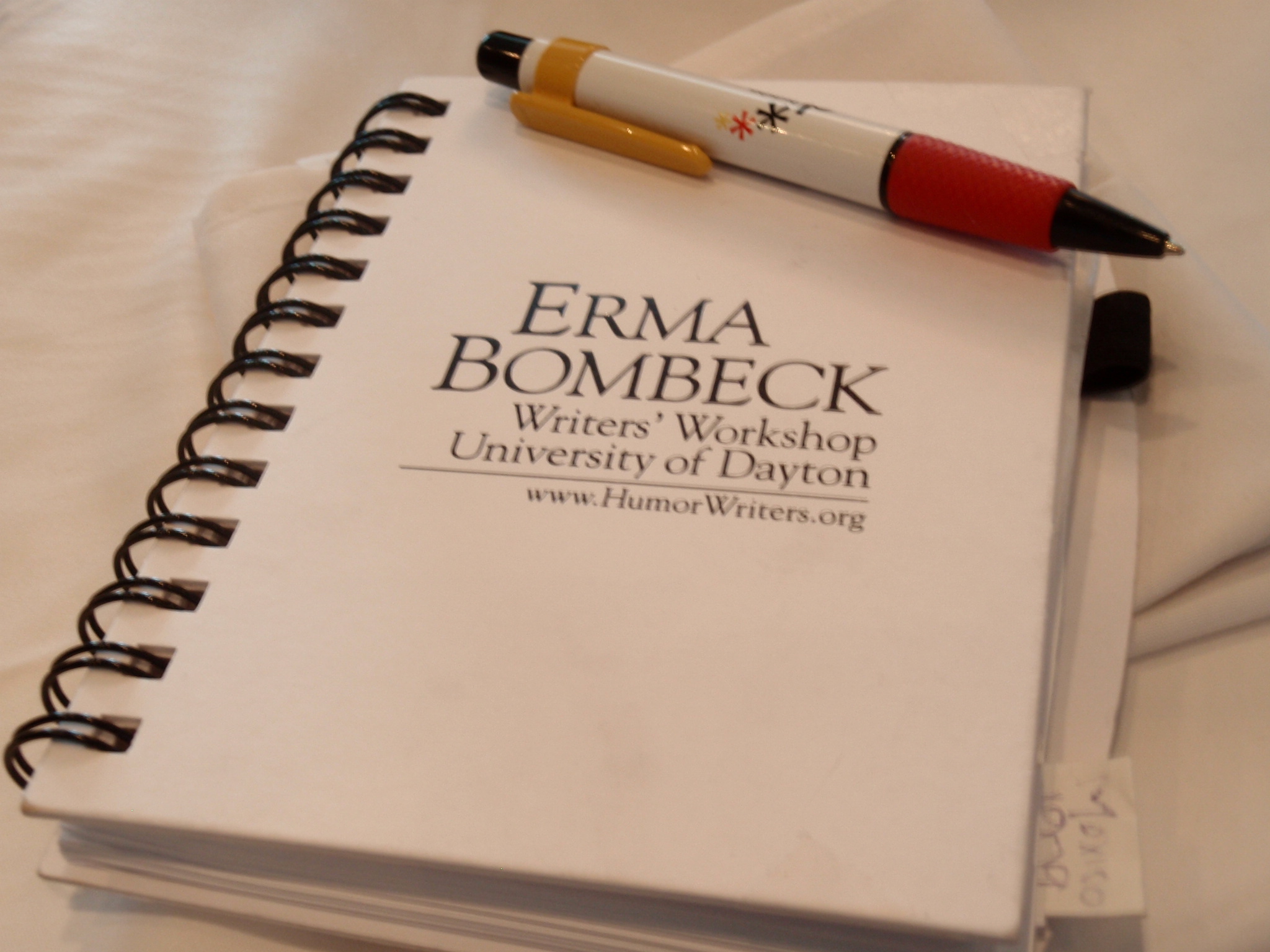
University of Dayton Erma
Bombeck Writers' Conference, 2006, 2008

Sisters in Crime,
Pasadena, 2009
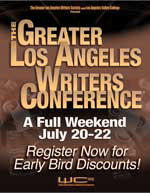
On the
Los Angeles Valley College Campus 2012, Rancho
Library 2013,
Valley College Spring 2014

Wisconsin Regional Writers Association
Presenter, Keynote 2010

Book 'Em,
NC,
Three Panels 2013

Presenter, 2013

Seminar Speaker, 2014
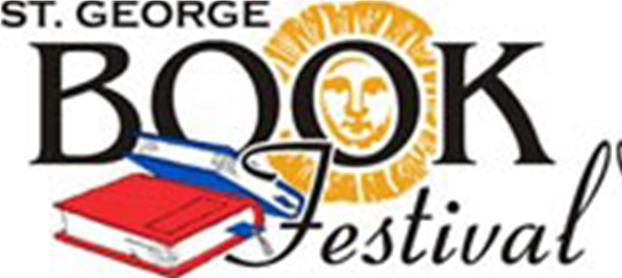
Keynote, 2013; 2014
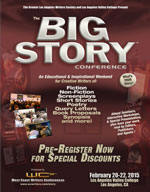
Secrets of Great
Dialogue, 2015
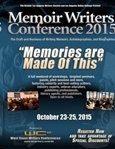
Digging Up Memories and Bringing the Dead Back to
Life
2015

Frugal
Book Promotion.
Judith Briles' Extravaganza,
Denver, CO, 2016
Learn
more about
Carolyn's conferences. |
|
Find
Carolyn on Pinterest |

Authors! I repin your
books to my boards when you repin mine to yours!
|
|
|
Proud to be Instrumental in
Helping Other Poets |
|
Poetry Mystique: A modern
text edited by Suzanne Lummis with commentary from the
editor.
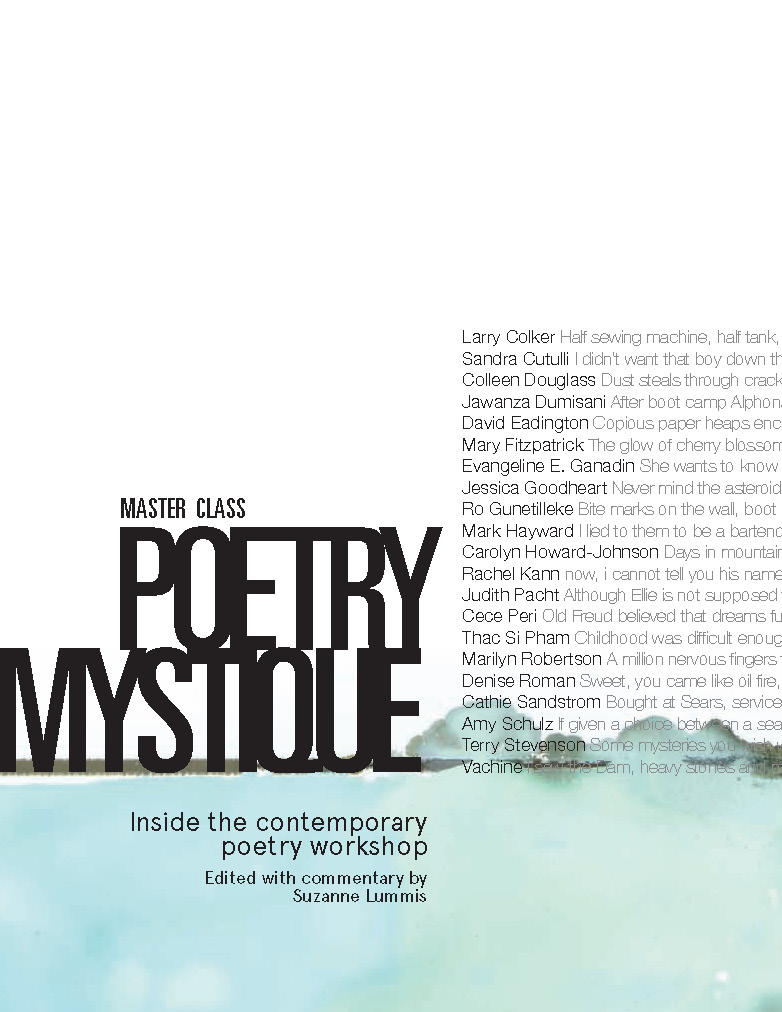
Poems by selected students from Suzanne's
many poetry classes.
|
|